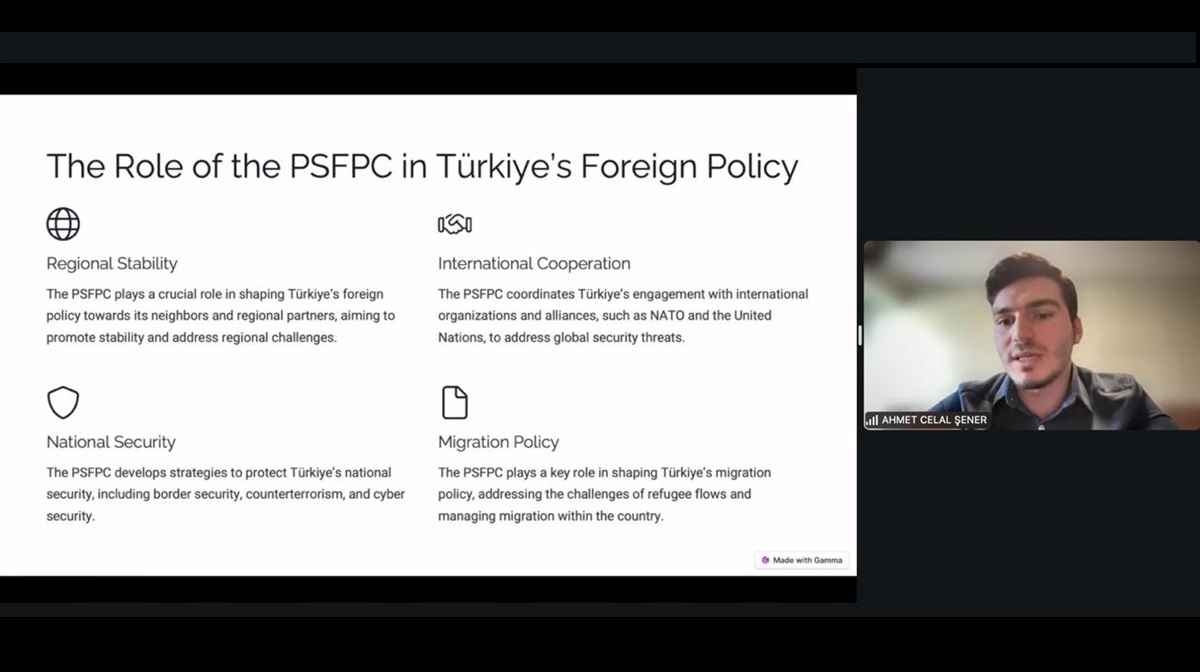


Ahmet Celal Şener, Academic Support Staff of Political Science and International Relations Department, participated in the 4th International Hittite Security Studies Congress with his paper "Managerial Transformation in Security Policy: Comparison of the Presidential Security and Foreign Policy Council and the US National Security Council."
The 4th International Hittite Security Studies Congress, held from December 12-14, 2024, brought together academics and experts from around the world. This year's congress, under the theme "Security in a Globalizing World: Challenges, Crises, and Opportunities," addressed current issues in security and foreign policy, offering a platform for in-depth discussions and research presentations.
At the congress, Ahmet Celal Şener presented an important paper analyzing the changes in Turkey’s national security architecture following the introduction of the presidential government system in 2018. The paper compared Turkey's Presidential Security and Foreign Policy Council (PSFPC) with the US National Security Council (NSC) in terms of their structure, duties, and powers. In his paper, Ahmet Celal Şener discussed the creation of the Presidential Security and Foreign Policy Council (PSFPC) under Turkey’s presidential system and compared it to the US National Security Council (NSC). He emphasized that the GDPK should be capable of producing flexible and rapid policies in response to global threats. The paper provided a detailed analysis of how the evolving dynamics of security and foreign policy may influence the effectiveness of such councils. Şener discussed the transformation of Turkey's domestic security structure and its implications for the global security system. This research sheds light on the functionality of new institutional structures and councils that are likely to play a key role in shaping Turkey’s strategies.
The congress featured a variety of presentations and panel sessions on topics such as international security, regional conflicts, cybersecurity, energy security, and more. Academics and experts also presented the latest developments in security policies, international relations, and strategic studies at the congress.